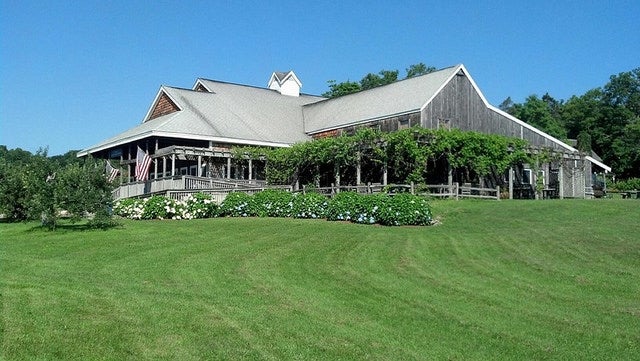Hoping to resolve an ongoing dispute between Nashoba Valley Winery and state alcohol regulators, Attorney General Maura Healey took steps Tuesday to ensure that Rich Pelletier can continue operating the farm as he has for the past 16 years without needing to try to speed a legislative fix through the House and Senate in the closing weeks of session.
Treasurer Deborah Goldberg, who oversees the Alcoholic Beverages Control Commission, has compiled draft legislation that would allow all farmer wineries, breweries and distilleries to also serve their products at standalone, on-site restaurants. However, Healey, who is representing the ABCC in a lawsuit brought by the Bolton winery, doesn’t think that will be necessary.
Assistant Attorney General Maryanne Reynolds wrote to Pelletier’s attorney John Connell on Tuesday ahead of a scheduled court hearing on Wednesday to say that the state hopes to resolve the matter out of court. In a rare instance of the Attorney General’s office siding with a plaintiff against the state agency it represents, Reynolds said the Attorney General’s office now believes there is “firm legal basis” for the ABCC to issue the licenses sought by the farm to continue uninterrupted operations.
At issue is whether a winery like Nashoba Valley can simultaneously hold a farmers manufacturing license and pouring license to serve its products at a restaurant located on the property. After 16 years of holding both types of licenses, the ABCC told Pelletier in March that he could renew his farmer’s license to produce wine, beer and distilled spirits, or his pouring license for the detached restaurant, but not both.
Pelletier has said choosing between his winery or his restaurant could doom both, and he filed a lawsuit in Suffolk Superior Court challenging the interpretation of the current alcohol licensing laws. Healey’s office initially filed a motion to dismiss the case, but when arguments begin on Wednesday the attorney general’s office is expected to ask the judge for more time.
“We do not believe that the ABCC’s practice, until this year, of approving a pouring license for Nashoba violated the “cross-ownership” provisions applicable to farmer-series licenses,” Reynolds wrote, continuing later in the letter to state, “In sum, we believe there is a basis to resolve this case by recognizing that the ABCC has the authority, under current law, to issue or approve the licenses that would allow Nashoba to continue uninterrupted operations in 2017.”
Healey’s office believes legislative adjustments already made to the alcohol licensing laws to “encourage the development of domestic vineyards” gives the ABCC the flexibility to allow Pelletier to operate both businesses.
Gov. Charlie Baker on Monday, in an interview with the News Service, said the ABCC’s ruling “sends a bad message” to small businesses and farmers, and said he was prepared to support legislation or legal action to ensure Nashoba Valley Winery can secure the licenses it needs to remain in operation.
Baker said he had been engaged in conversations with Healey’s office, and Goldberg said she was also working with the ABCC, the attorney general’s office and lawmakers to reach an equitable solution.
To that end, Goldberg’s office has drafted legislation that would allow farmer wineries, breweries and distilleries to also hold pouring licenses to serve their products at “appurtenant or contiguous” restaurants, but the farms would be restricted to only sell their own branded products and not outside alcoholic beverages.
The bill would apply to all Massachusetts farmer licensees, and Goldberg’s office said Tuesday they are working with legislative leaders to determine how to introduce the bill before the end of formal sessions in July.
It could either be considered as a standalone bill filed by a local representative, or offered as an amendment to another piece of legislation already moving through the House and Senate.
Rep. Kate Hogan, a Stow Democrat who represents Bolton, said she would be looking to the Attorney General’s office first to help broker a solution to Nashoba Valley Winery’s situation, but would be willing to do whatever’s necessary to get the winery the licenses it needs.
“What I’ve been trying to convey is not renewing the licenses would effectively shut down their sales operation and jeopardize the survival of the winery, distillery and brewery,” Hogan said. “My understanding is that this will be resolved by the time we get to the (court) hearing with a clear path to a resolution.”
Assuming this license dispute can be resolved administratively, Hogan said that rather than try to push a bill through this session to deal with farmer licenses, the Legislature should take a “broader” look next session at the alcohol regulations as they apply to all types of businesses.
“I’m confident this will be resolved and I also feel that we do need to look at this on a broader canvas and come to an understanding of how we can create public policy and a regulatory framework that works and that is fair and allows us to create a 21st century economy,” Hogan said.

